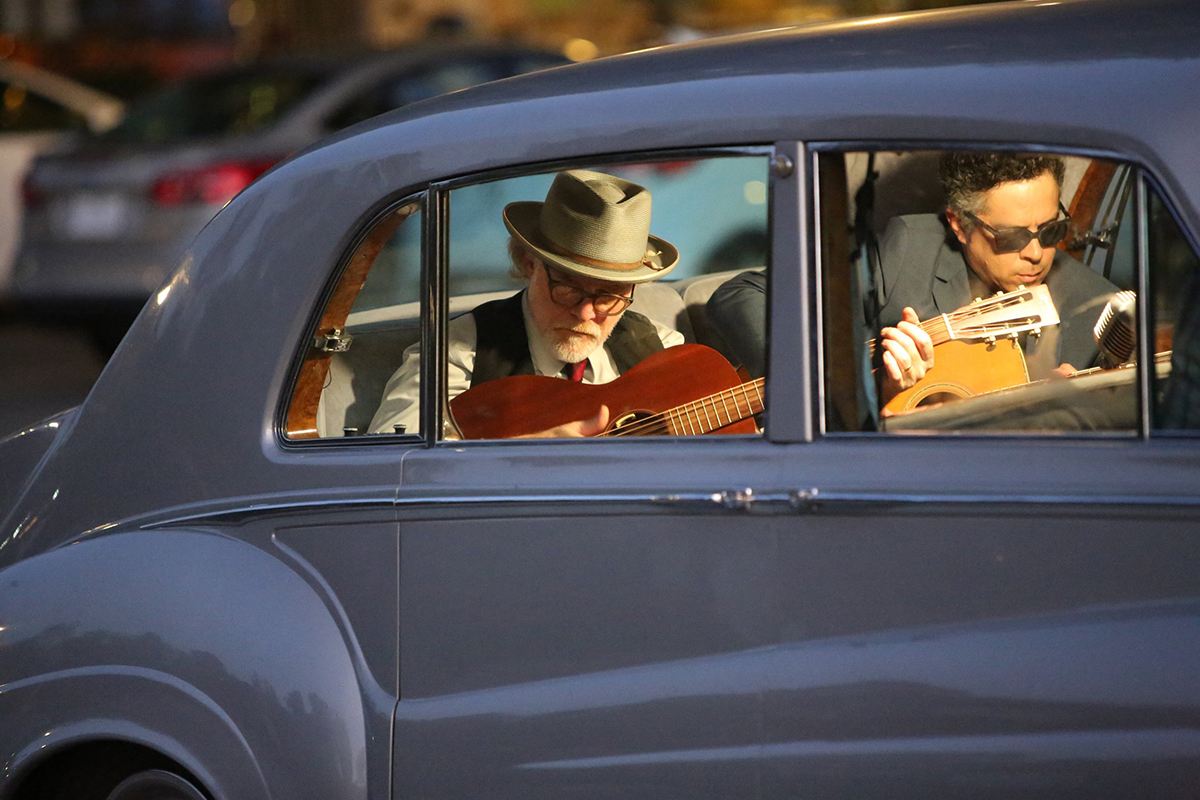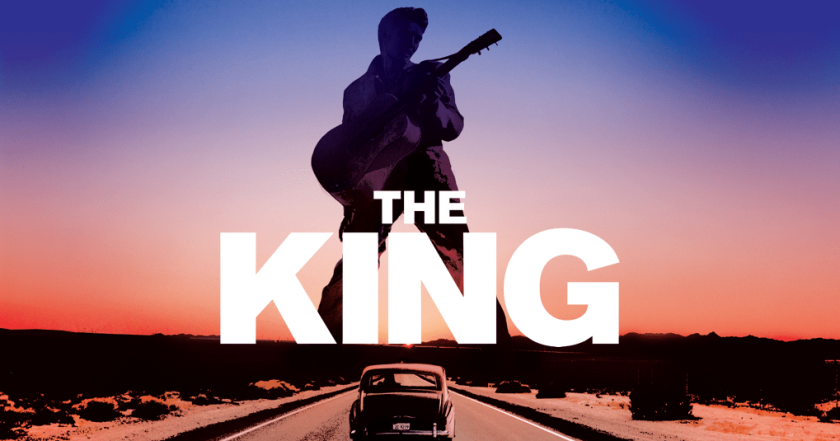The most famous face in musical history, and perhaps the instigator of modern culture as we know it; he truly was the King. But for a documentary focused on such an icon, The King touches very little on Elvis Presley the man. This is not another biography on America’s first son, but a study on the persona, the myth and the brand that was created around him.
Everyone has their own idea of who he was: the hip-swivelling rebel, the military hero, the irresistible leading man, the grotesque Vegas attraction. He was, in every complex and contradictory way, the living embodiment of the United States of America. This is filmmaker Eugene Jarecki’s theory, so he loads up Elvis’ old Rolls Royce and sets off visiting the places from Presley’s life, from birthplace Tupelo to his final days in Las Vegas. Along for the ride are a host of familiar faces from music and screen, including Ethan Hawke, Alec Baldwin, Emmylou Harris and M. Ward. Each have their own idea of Elvis, and in a way, all reflect a part of his journey.
He was the American Dream: the undefinable, universal ideal that the whole country’s been sold
The King is serviceable as an Elvis documentary: there’s a huge selection of archive material and choice clips of Presley in conversation. The airmiles the crew cover also gives them access to everyone from the son of Sun Records founder Sam Phillips (who heard Elvis’ first single before anyone else), to the housekeeper who found the King on his final throne. But the focus is not on Presley, rather what he represented. By the end of the feature, you’ll have learned very little about the man behind the guitar, and perhaps less than what you thought you knew.
This is Jarecki’s point – the Elvis we know was a creation, formed by manager Colonel Phillips and a host of commercial interests. He was the working-class boy who became sensation, he was the sensation who served his country, he was the veteran who turned into a film star. He was the American Dream: the undefinable, universal ideal that the whole country’s been sold. As the film crew travel across the US, they speak with everyone from the blue-collar workers to the pampered elite of Beverly Hills. Each has a different memory of Elvis and a different understanding of what the Dream represents, but they all seem to agree the Dream is a lie (or at least long dead). The bastion of democracy has become capitalism ad infinitum.
As the film crew travel across the US, they speak with everyone from the blue-collar workers to the pampered elite of Beverly Hills. Each has a different memory of Elvis and a different understanding of what the Dream represents, but they all seem to agree the Dream is a lie (or at least long dead). The bastion of democracy has become capitalism ad infinitum.
Jarecki uses Elvis as a vehicle both metaphorically (and literally, with his Rolls) to describe the rise and fall of America: in its founding years, it was the hip-swivelling rebel, tearing down the status quo of kingdoms to offer something new; then it conquered the world with the moving picture, spreading its culture to every screen across the world; now, as pointed out by rapper Immortal Technique, America has reached its fat Elvis stage – Trumps election indicates the OD is incoming.
Most of the documentary shows Elvis as a passenger in his own mythos, but contributors Chuck D and Van Jones (President of Rebuild the Dream) offer a more cutting analysis: Presley was at the very least complicit in stealing black culture and profiting from it, never supporting the civil rights cause despite his upbringing. It’s a fascinating insight that is sadly just one piece in someone else’s larger puzzle.
The King is a visual essay – it proposes a thesis, then builds a convincing argument, bouncing between Presley’s life and the state of the nation. It looks and sounds fantastic, with archive material bleeding into modern America. However, two hours isn’t really long enough to get your teeth into either subject. America and Elvis are wild contradictions, in many ways too large to fathom: simultaneously in the pursuit of liberty and happiness, yet continually growing as mainstays of capital excess. Both subjects could be deep dived for hours, but The King makes an enjoyable and cohesive overview.













Add comment